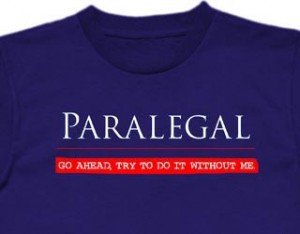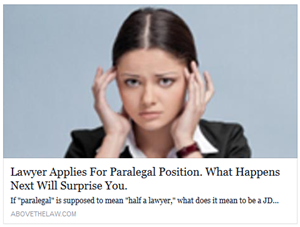#DontDiscussBusinessInPublicLikeThis
April 19, 2017Think, for a moment , about the last time you were at the grocery store, a mall, or in any public setting. Did you encounter people on their cellphones and having face-to-face conversations? What did you hear in passing?
, about the last time you were at the grocery store, a mall, or in any public setting. Did you encounter people on their cellphones and having face-to-face conversations? What did you hear in passing?
Me? I had just dropped off a prescription at the pharmacy in my local grocery store and decided to do a little shopping while it was being filled. Cart and shopping list in hand, I found myself trailing a meanderer who was more focused on her conversation than shopping. Normally, I would have zipped past her, but the aisle was crowded and she kept pausing – not to shop or compare prices. Oy, gott in himmel,[1] that would have been a blessing.
No, my friends, she stopped, every few steps, to emphasize some salient (salacious?) point. Did I mention she was on speakerphone? The subject of the conversation – words I shall never unhear – in graphically intimate detail … the tribulations with her current method of birth control, punctuated by her friend’s excruciatingly, descriptive observations and commentary.
Oh how I wished that a ‘cone of silence’[2] would drop soundly on her (or my) head.
When did we become so complacent and nonchalant about the most intimate details of our lives?
How did we lose the skill to self-censor our actions and suppress the things we say and share?
At what point did we allow technology to override our awareness of the where, when, and what of our speech and actions?
And what, you may ask, does my grocery store encounter have to do with our jobs, duties, and responsibilities as paralegals?
More than you might realize –
You’ve seen the news, reports, and posts about the impact of technology and social media on ethics and confidentiality. Perhaps you’ve read one or more ethics opinions on the subject. As paralegals, we must be mindful of the constantly changing landscape that is 21st century law and give proper consideration to the implications of those transformations within the walls of our offices – you know, the sanctum sanctorum where we adhere to the rules. We know what we should and shouldn’t do. Right?
Just in case, let’s review the rules …
We’ll start with NFPA’s Model Code of Ethics and Professional Responsibility and Guidelines for Enforcement. Ethical Considerations 1.5 sets the standard for confidentiality:
EC-1.5 (f) A paralegal shall not engage in any indiscreet communications concerning clients.
It is derived from Rule 1.6 of the ABA Model Rules of Professional Conduct – Confidentiality of Information. This rule defines a lawyer’s – and every paralegal’s – ethical duty to take reasonable measures to protect confidential client information from inadvertent or unauthorized disclosures. Paragraph (a) states, in part:
- A lawyer shall not reveal information relating to the representation of a client unless the client gives informed consent …[3]
In May 2012, the ABA Commission on Ethics 20/20 submitted a Resolution and Report on Technology and Confidentiality to the ABA House of Delegates with recommendations for significant changes to the Model Rules to conform with advances in technology. Subsequently, Rule 1.6 was amended to include the following paragraph, ostensibly in consideration of the effect of technology on the practice of law and to further clarify concerns about inadvertent or unauthorized disclosure:
(c) A lawyer shall make reasonable efforts to prevent the inadvertent or unauthorized disclosure of, or unauthorized access to, information relating to the representation of a client.
Are you taking notes?
Today, my esteemed colleagues, I’d like you to consider your role in the prevalence of inadvertent disclosure in the real world. Keep the thou shalt nots of the rules cited above in mind while you consider the ramifications and indirect consequences of your interactions once you leave the hallowed halls of your work places.
Let me share a true-life example courtesy of Jennifer Ellis, JD, a respected expert on social media and ethics.[4] On March 6, 2015, Jennifer live tweeted an entertaining, albeit unsettling, account of her observations while waiting for her car to be repaired:
- At a car dealer. Man is talking to his employee about a third employee. #badidea
- He is talking to a woman with the same first name as me, which caused me to notice.
- He gave Jennifer detailed information about how to log into their bank system. I heard the name of the bank and the passcode.
- #dontdiscussbusinessinpubliclikethis
- He is explaining his payroll issue. It seems there is an issue with the bank.
- He needs to pay his employees half in cash
- I could easily figure out who this guy is, where he works and the location of his safe with money in.
- He is confirming he has large amounts of cash in his safe.
- Now I know where they are meeting with a large amount of cash. He even provided detailed directions
- Now I know his full name.
- So to recap. I know name, bank, password (I forgot that immediately alas) that Dawn is in trouble. That he is buying a property.
- Where the property is. And that he will be carrying cash.
- I will not give in to the temptation to look up his name. Which I will forget very soon anyway. [5]
What happened to common sense? Did he really think no one would hear his conversation? One can only hope that, 1) other customers in that waiting room also chose to ignore temptation; and 2) no one in that room knew any of the named parties.
‘Fess up. You just had a ‘have I done that?’ moment.
Put your on paralegal suit and consider a typical day at work. You’ve settled in to perform your characteristic paralegal magic, and, SCENE:
- You’re in the elevator with co-workers talking about opposing counsel.
- You’re at lunch with colleagues when the conversation turns that PITT (“Pain in the Tuchas”) client.
- You’re driving home from work and you call your BFF (hands-free connection, of course) to whine about your day.
- You’re in line somewhere, phone in hand, checking office email or texting a colleague.
- You’re at the park on the phone discussing trial details with your supervising attorney.
- You’re on the train, a plane, or in some very public waiting area working on your tablet or laptop.
- You’re at a professional event comparing war stories.
- You’ve posted a hypothetical to an online forum on Facebook, LinkedIn, an ‘old school’ listserv, or discussion board.
If you’re first thought is, ‘she can’t be serious’. You’re wrong.
Remember EC 1.5 (f)? “A paralegal shall not engage in any indiscreet communications concerning clients.” [emphasis added]
What about Rule 1.6 (a) and (c)? For additional insight and guidance, we look to the comments to Rule 1.6, specifically as they apply to paragraphs (a) and (c).[6]
Comment 4 expands the application of Paragraph (a) – the rule that ‘prohibits a lawyer from revealing information relating to the representation of a client.’ According to Comment 4:
This prohibition also applies to disclosures by a lawyer that do not in themselves reveal protected information but could reasonably lead to the discovery of such information by a third person. A lawyer’s use of a hypothetical to discuss issues relating to the representation is permissible so long as there is no reasonable likelihood that the listener will be able to ascertain the identity of the client or the situation involved. [emphasis added]
Comment 18 elaborates on Paragraph (c)’s requirement that ‘a lawyer make reasonable efforts to prevent the inadvertent or unauthorized disclosure of, or unauthorized access to, information relating to the representation of a client.’ In significant part, Comment 18 explains that a lawyer is required:
… to act competently to safeguard information relating to the representation of a client against unauthorized access by third parties and against inadvertent or unauthorized disclosure by the lawyer or other persons who are participating in the representation of the client or who are subject to the lawyer’s supervision. See Rules 1.1, 5.1 and 5.3. … Whether a lawyer may be required to take additional steps to safeguard a client’s information in order to comply with other law, such as state and federal laws that govern data privacy or that impose notification requirements upon the loss of, or unauthorized access to, electronic information, is beyond the scope of these Rules … [emphasis added]
In short, we’re bound by the rules to be discreet to avoid inadvertent or unauthorized disclosure. Although the rules seem to place more emphasis on electronic mishaps and that which occurs within the office, I submit that rules extend to the spoken word and the manner in which we conduct ourselves outside the office … at all times.
- With the rules in mind – what considerations should have been made regarding the above scenarios?
- ‘The elevator’ – Were you the only occupants at the time? Did someone board the elevator while you were in mid-conversation? Is there a chance that OC or the other party has offices in your building and someone overheard your conversation? How much did you say and in what context? From an alternative perspective, you’re alone on the elevator when some attorneys from another firm, in the midst of a heated discussion about a settlement agreement, join you. As far as they’re concerned, you’re invisible.
- “At lunch” – Who can hear you? If you think the answer is, ‘It was noisy, no one could hear us.’ You’re wrong. You heard each other, didn’t you? How specific were your comments? Did you name names or other details about the case?
- “Driving home” – Granted, you’re alone in your car and your BFF doesn’t even work in a law related industry. How could there be an issue? Did you rant about a colleague or client, or discuss the details of a file you’re working on?
- “In line” – I bet you’re thinking, it’s a tiny screen. Who would take the time or energy to read over my shoulder? Does it really matter? A friend recently told me she’d been able to clearly see some random guy’s entire text conversation while she was sitting inside a coffee shop and he was sitting outside merrily texting along.
- “At the park” – Who was around you? Did it occur to you to mention where you were or suggest that you would call back when you were in a more secure location? How detailed was your conversation?
- “On the train …” – Was it a secure Wi-Fi connection? What about your screen? Could anyone look over your shoulder and read that pleading your drafting? Maybe it’s time to invest in a VPN and privacy screen protector.
- “At a professional event” – This one should be obvious. The attendees are about as diverse a group as you can get and you’re in public (semi-private doesn’t count). Unless you’re speaking in Enigma level code, it’s likely you’re unintentionally giving away the proverbial farm.
- “Posting to a forum” – How often have you read and responded to questions posted by other paralegals requesting information or clarification on a situation? Or perhaps you’ve posted your own query – how well disguised was your hypothetical? Did you take time to consider that someone from the other side might be a member of the group – lurking in the background? Did you disclose information by way of an innocent inquiry? Did you commit UPL??
These things happen every day and we often let them pass without a second thought.
How much identifiable or confidential information have you inadvertently disclosed?
This is no joking matter!
Think before you speak, type, text, send, post …
Reprinted by permission from The National Federation of Paralegal, Associations, Inc., www.paralegals.org.
[1] Loosely translated from German as “good heavens”
[2] Get Smart (TV Series 1965–1970)
[3] Rule 1.0(e) “Informed consent” denotes the agreement by a person to a proposed course of conduct after the lawyer has communicated adequate information and explanation about the material risks of and reasonably available alternatives to the proposed course of conduct.”
[4] http://www.jlellis.net/blog/ – @jle_jd
[5] I have redacted a significant number of posts from the original, 1-hour feed.
[6] Model Rules of Professional Conduct Comment on Rule 1.6, http://www.americanbar.org/groups/professional_responsibility/publications/model_rules_of_professional_conduct/rule_1_6_confidentiality_of_information/comment_on_rule_1_6.htm
2 CommentsNot Quite Speechless . . . “Paralegals an Embarrassment”
August 26, 2015Y’all know me – ‘speechless’ and ‘without words’ rarely apply to me. It usually happens when I am too stunned by the comment(s) to respond immediately.
Imagine my reaction to a blog post titled: “Your Paralegals are an Embarrassment“. I clicked the link. My hope was to read ‘. . . of riches’. (It pains me to post the back link, but I’m no ’embarrassment’.)
Hope.dashed.
The author gleefully states, “Today, I’m going to really annoy the paralegals.”
ANNOY?
Oh, bless his heart.
In short, the author (and several commentators) think our profession is overrated; we should and can be replaced by technology; and/or entry level associates provide more value to a practice than we do.
REALLY???
My comment, awaiting moderation as of 10:45 a.m.:
“Wow. Just, wow. You really have zero, zilch, nada, no appreciation for our profession.
“Paralegals have largely been replaced by technology.” Well, using that logic, so have many attorneys. Tell me, when was the last time tech checked the local rules and forms to confirm that all was indeed in order? Oh, right, ‘my software/service vendor does that automatically.’ Not so much. I have a client in California who relies on his vendor to provide all the latest local rules’ forms updates. All it took was ONE rejected filing for him to realize that the vendor was not updating the forms and that it was more cost effective to have a paralegal take a few extra minutes to make sure the forms in use are, and remain, current.
“Is client communication better handled by the paralegal or by the attorney managing the matter? What about simple tasks like preparing documents for trial?” Let’s look at this from the client’s point of view – does your client want to pay your hourly rate or a paralegal’s?
And if you think paralegals don’t specialize and create niches, you should recheck your sources. 99% of us are – Brad, what did you call it? – oh, right, ‘hybrids’. Our titles may not reflect the jobs we actually do, but, and trust me on this, we’ve always been hybrids.
All of you seem to think the only way to ’employ’ a paralegal is to hire one as a full time staff member. Most solos/small firms don’t have the budget for full-time, salaried employees – especially when those employees’ services aren’t required full time. You want paralegals who are ‘tech-driven’? Open your eyes! There’s an entire subset of trained, experienced, certified/certificated, practice-specific virtual paralegals. We, yes, ‘we’, provide as needed services. That means ‘pay as you go’. You want to improve your bottom line, increase productivity, and keep your clients happy? Think virtual.”
On another note … I wonder if it ever occurred to the author to post credit for his use of the image?
10 CommentsHalf a Lawyer?
June 26, 2014Seen on Facebook … a teaser for a recent Above the Law article:
‘Half a lawyer’????
srsly?!
Someone neglected to look up ‘para’ before writing such an outlandish, inappropriate, and, well, offensive comment.
The prefix ‘para’, from Greek, does not mean ‘half’. It does, however, mean “at or to one side of, beside, side by side” or “ancillary or subsidiary to roles requiring more training, or of a higher status”.
Paralegals work side-by-side with attorneys. We are degreed, certificated and certified, and some of us even have post graduate degrees. The only time the expression ‘half a lawyer’ might apply would be with regard to our salaries.
6 CommentsWordRake – Make Yourself a Better Writer
May 28, 2014I have just completed a 1-year free trial of WordRake, and, well, I love it!
“WordRake® software is an add-in to Microsoft Word. It will “rake” any Word document and suggest edits to make the document clearer and more concise.”
I discovered WordRake at ABA TechShow 2013 and was offered an opportunity to test-drive it for a year. What I saw during the live demo was amazing. They highlighted a 30-page brief, clicked WordRake, and, within a minute, WordRake had identified a host unnecessary/cumbersome language and made suggestions to be accepted or rejected.
I use WordRake on almost everything I write – my blog, articles for print media, homework (I’m still in grad school), and work. It really has made me a better writer.
On May 13th, WordRake released a new version –
WordRake 2 removes unnecessary words, enlivens your sentences, and teaches you how to be a better writer. All inline within Microsoft Word, just like a live copy editor. Only faster. WordRake 2 can edit 25 pages and suggest 200-300 improvements in one minute.
Compose in Word, click the “rake” button, and watch WordRake 2 instantly ripple through your document, revealing edits to tighten and clarify your writing.
Click below to see WordRake in action:
Give it a shot. Sign up for a free trial today (no credit card required) and see for yourself how you can streamline your writing.
Comments Off on WordRake – Make Yourself a Better WriterParalegals & UPL
January 21, 2014I am a member of the NFPA Ethics Board. I’d like to think that means I actually know something about paralegals, ethics and UPL.
I recently found myself in an open forum defending my career of choice. The participants, mostly lawyers, were tripping over themselves trying to ‘splain (or were they trying to understand? Hmm.) the relationship between paralegals and UPL. For the uninitiated, UPL is the unlawful practice of law.
Attorneys practice law; paralegals support attorneys. If I’d wanted to practice law, I would have earned a law degree and sat for the bar.
As I write this, the debate is still raging. I finally shared the following on the forum:
Comments Off on Paralegals & UPLOn behalf of the non-lawyer legal service providers – specifically the paralegals – on the list …
This is how we make our living – either as part of the BigLaw machine or as freelancers. We take great pride in understanding the limitations that come with being “just a paralegal”. And we sometimes take offense when asked why we didn’t just become lawyers.
First, the ABA makes it very clear that we must operate under the supervision of an attorney … except in some states that regulate non-attorney service providers, such as California’s Legal Document Preparers who have limited, but approved, privileges to work directly with consumers as long as they meet the requirements set out by the state.
Someone suggested that paralegals can do everything EXCEPT appear in court. Well, that’s wrong. In some states, paralegals may make limited appearances under very specific circumstances. The list of what paralegals can’t (shouldn’t oughta) do is a bit longer.
At this time (and yes, I’ve done my research), there is not an all-governing definition of UPL. The ABA Model Rules provide some direction, and each bar has its own ideas. For the most part, any paralegal worthy of the moniker agrees that UPL includes:
- giving legal advice;
- accepting cases;
- setting fees;
- planning strategy;
- making legal decisions;
- taking depositions; and
- appearing in court.
In fact, in spite of the fact that my colleagues and I advertise that “we only work for attorneys”, we find ourselves ‘mini-Mirandizing’ potential clients because the general public keeps trying to sneak in. I can’t tell you how often I have to explain to people that if I were to answer their ‘simple question’, I would likely be giving legal advice and risk losing my livelihood.
As for the folks (non-lawyers offering legal services) advertising on Craigslist – look at the source. We do not claim ‘those’ people. They aren’t paralegals – if they were, they’d know better! They make us look bad and they are part of the reason we get so many of ‘those’ calls.










